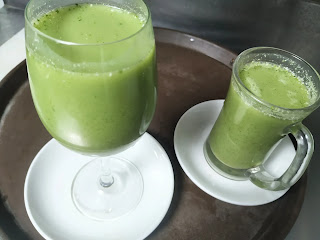5 Tips to make your cooking utensils last longer
5 Tips to Make Your Cooking Utensils Last Longer
Cooking utensils are valuable tools in every kitchen. Whether you’re a simple home cook or an experienced chef, they can help you prepare and serve dishes in the easiest and safest way possible.
However, like any gadget, they can become worn and damaged over time. This causes them to become less effective and even dangerous to use.
What is cooking Utensils?
Cooking utensils are tools or instruments used in the
kitchen to prepare, cook, and serve food. They are essential components of any
kitchen and are designed to make the process of cooking more efficient and
convenient. These utensils come in various shapes, sizes, and materials, each
serving a specific purpose in the cooking process.
Here are some common types of cooking utensils:
Cutting Utensils :These include knives and scissors used for chopping, slicing, and dicing ingredients.
Cooking Pots and Pans : Essential for cooking various dishes, pots, and pans are typically made of materials like stainless steel, cast iron, non-stick, or copper.
Spatula : A flat, flexible
tool used for flipping and turning food while cooking.
Tongs : Used to grip and
lift hot items like meat, vegetables, or pasta.
Whisk : Used to mix and beat
ingredients, especially for baking.
Measuring Cups and Spoons : Essential for
accurately measuring ingredients in recipes.
Grater : Used to grate
cheese, vegetables, or citrus zest.
Peeler : Used to peel the
skin off fruits and vegetables.
Colander : A perforated bowl
used for draining water from pasta, vegetables, and other cooked items.
Mixing Bowls : Used for mixing and
combining ingredients.
Baking Trays and Sheets : Used for baking cookies, cakes, and other baked goods.
Mortar and Pestle : Used for grinding and crushing
herbs, spices, and other ingredients.
Can Opener : Used
to open canned goods.
Kitchen Shears : Similar to scissors but designed for
kitchen use, such as trimming meat and herbs.
Pastry Brush Used for applying glazes or butter on pastries and other baked goods.
These are just a few examples of the many cooking utensils available. The right utensils can make a significant difference in the cooking process, making it more enjoyable and efficient for the cook.
Below we are going to discuss some tips to help your utensils last longer so that you can continue to create delicious meals for years to come.
Interested in learning more? Then let’s get started!
Best tips to last longer kitchen utensils
1. Practice Regular Maintenance
When it comes to prolonging the life of your kitchen utensils, practicing regular maintenance is essential. Inspect them regularly for signs of wear and replace those that are in bad shape.
Some utensils will also require additional care. Special products can be purchased to keep them in great condition and even have alternate benefits such as these blade wax uses.
2. Store Utensils Correctly
Alongside regular maintenance, it’s always best to ensure you are storing your tools correctly. Keep them in a drawer or on a magnetic holder that is dry to avoid rust.
You also want to avoid storing them in a crowded location. This will cause them to bang against each other which results in further scratches and cracks. It’s a simple step that can make a noticeable difference.
3. Invest in High-Quality Options
Cheap tools are always going to break rather quickly as they aren't made of durable materials. If you want to avoid making regular replacements, invest in high-quality options early on.
Not only are they built to withstand frequent use, but they can get their job done more effectively. Trust us when we say, you really will notice a huge change when it comes time to cook your favorite recipe.
4. Use Utensils Appropriately
Always use your utensils properly to avoid damaging them. For example, if you use plastic on high heat, it can cause them to melt or warp. Alternatively, if you use metal utensils on non-stick cookware, they can scratch the surface and damage their non-stick properties.
If you’re ever unsure, do a quick google search. It will save you from a lot of stress later on.
5. Ensure Proper Cleaning
Lastly, one of the simplest ways to keep your utensils in good shape is to clean them properly. By removing food residue immediately after use, you won’t have to scrub so hard later on.
Use warm water and gentle soap and avoid abrasive materials that can damage the tool's surface. If your utensil has special instructions, be sure to follow them carefully. Some chemicals can cause them to deteriorate, especially when placed in a dishwasher.
In addition to above listed steps there are few things more i would like to share which can help to last your kitchen utensils longer.
Oil wooden utensils: Wooden utensils, such as spoons and
cutting boards, can be treated with food-grade mineral oil regularly to keep
them from drying out and cracking. This also helps prevent the absorption of
stains and odors.
Maintain non-stick surfaces: If
you have non-stick utensils, avoid using metal utensils on them, as it can
scratch the non-stick coating. Opt for silicone, nylon, or wooden utensils
instead.
Sharpen knives regularly: Keep
your knives sharp by regularly honing and sharpening them. A sharp knife is
safer and more efficient, and it will reduce the risk of slips and accidents.
Regularly inspect for damage:
Periodically check your utensils for signs of wear, damage, or degradation.
Replace any utensils that have become unsafe or severely worn.
Final Words
Your utensils are essential tools that make cooking in the kitchen easier and more enjoyable. Thankfully, by following the above, you can ensure that they last as long as possible.
What do you think? Do you have any special tips that have proven beneficial for your kitchen gadgets?
More popular recipes










